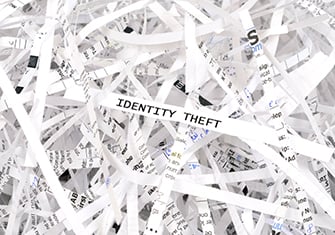
Top 5 Reasons You’re On The Match List (And How To Get Off)
October 29, 2021
What To Do If You’re On The MATCH List
January 6, 2022The Two Ways to Get Off The Match List
So, you have just found out that you are on The Match List. As of right now, you are unable to process payments through your merchant account. This makes conducting business virtually impossible, as most people pay with a card. In fact, 80% of people prefer card payments over cash, putting your business in a vulnerable position. Luckily, there are ways to get off The Match List and get back to business as usual. Keep reading to learn more about The Match List, how you may have ended up on it, how to keep your business open, and the two ways to get off The Match List.
How Did I End Up On The Match List?
The TMF list was created by Mastercard. It is a list of merchants who have had their accounts terminated within the last five years for a variety of reasons. You can think of The Match List as a blacklist to warn processors about high-risk merchants. It is referred to by every processing company before deciding to do business with them. If you’re on it, you will more than likely be dropped by your current processor and unable to get a new account with a new one.
The Match List goes by different names. These include:
- Terminated Merchant File (TMF)
- MATCH (Merchant Alert To Control High-Risk)
There are many reasons you may have been placed on The Match List. For the full list of rules and procedures to follow, check out this guide from Mastercard. However, the most common reasons that merchants get placed on The Match List include:
- Excessive Chargebacks. When an individual does not recognize a charge on their bank statement or does not receive a company’s goods or services as advertised, they may open a chargeback to reverse the charge. Chargebacks happen — keeping a chargeback percentage of under 1% is ideal and will keep your business in the safe zone and off The Match List. Once you reach a chargeback rate of 2% or higher, you run the risk of getting placed on The Match List.
- Fraud and Data Breaches. Whether it is your fault or not, fraud and data breach issues can get you placed on The Match List. Make sure your company is up-to-date with security compliance to minimize your risk of hackers and to protect yourself from The Match List. If your business is a frequent victim of fraud and data breaches, it can be hard to ask for removal.
- Unlawful Activity. Things such as money laundering, conspiracy, and illicit transactions will put you on The Match List very quickly. However, many businesses can become victims of identity theft or have unscrupulous employees who put them in this position. If you are able to prove your innocence, make sure you gather as much documentation as you can. This will go a long way in getting early removal from The Match List.
Can I Still Run My Business?
The reason The Match List exists is to warn payment processing companies about merchants who are high-risk. This leaves it up to the payment processing company as to whether or not they still want to do business with you. If they have decided to no longer do business with you, you will end up in a difficult position as far as accepting payments. As mentioned, most people pay with cards. Eliminating that ability will damage your business, and you will undoubtedly see a significant hit in your sales. However, there are still some ways you can accept payments, such as:
- Finding a high-risk processor. You may be able to find a payment processing company that works with high-risk merchants, depending on why you were placed on The Match List. However, many high-risk processors require very high fees and a long-term contract. If you are able to remove your business from The Match List before the contract ends, you will still be stuck with the high fees.
- Accepting payments virtually. Accepting payments using your personal account in cash apps such as Venmo, Zelle, or other wallets is risky but possible if you do not use your business name. You may run into issues with customers who are not comfortable with this, as well as other issues on the backend after processing payments personally.
- Becoming cash only. If you can, you can become a cash-only business while you work out your merchant account issues. This is a risky option because you will potentially lose a lot of customers and sales—even after you’re able to accept credit cards again. Most people these days do not carry cash and it is highly unlikely your business will survive on the cash only switchover.
Two Ways to Get Off The Match List: Wait It Out
The thing about the TMF List is that it is very comprehensive. It includes:
- Your business name in all its forms
- Names of the business owners
- Names of associates
- Business address and contact details
This is very damaging to not only a business but to the individuals involved in it. You will not be able to simply move on and open another business under a different name while you are on The Match List. There are no loopholes with The Match List — once you’re on the blacklist, it is almost impossible to keep doing business.
Luckily, The Match List only has your information for five years. Once the 5-year waiting period is over, any trace of ever having been on the list is virtually erased. You are able to open another merchant account without having that dreaded high-risk flag pinned to your name.
However, this is much easier said than done. Not accepting credit cards for a 5-year period is essentially a death sentence for a small business. You will more than likely go out of business and, even then, you won’t be able to open anything new in your name until the 5-year waiting period is over. For those who depend on their small business for their livelihood, it is devastating.
Two Ways to Get Off The Match List: Prove Yourself
Surviving the 5-year waiting period isn’t an option for most people and businesses. Another way you can get off The Match List is by simply calling your credit card processor and asking why you have been placed on The Match List. In many instances, it is something that can be quickly cleared up. Some of these can include:
- Prove your PCI compliance. If your business is a victim of fraud, a data breach, or identity theft, and this is why you were placed on The Match List, prove to your processor that you now have up-to-date PCI security standards. To protect yourself and comply with these standards, check the most current PCI DSS documents, which can be found here.
- Learn your chargeback rate. If excessive chargebacks are the reason for your red flag, look into your chargeback rate. If you can prove that it is under 2%, you may be removed.
- Seek legal assistance. Speaking to credit card processors isn’t easy, and sometimes saying the wrong thing can keep them from working with you on removal. TFM Law can help you get removed from The Match List and get back to business as usual.
About TFM Law
Waiting for the five-year period for removal isn’t possible for most people. If you are one of those people, we can help you. The Law Offices of Theodore Monroe focuses on litigation and counseling in payments, credit card processing, e-commerce, direct response marketing, and Federal Trade Commission enforcement. Last year, the firm got 100% of the people who came to us off the MATCH list.
Theodore F. Monroe, Founder of TFM Law, has successfully:
- Represented merchants recovering funds from processors
- Structured processing relationships to comply with Card Brand requirements
- Drafted and negotiated contracts involving payment facilitators and ISOs
- Represented continuity merchants in compliance and litigation issues
- Fought for numerous companies in suits brought by the Federal Trade Commission and obtained excellent results for
- firms in the digital products, loan modification, government grant, and nutraceuticals industries
Before opening his firm, Mr. Monroe practiced law with Crosby, Heafey, Roach & May (now Reed Smith LLP) and Lewis, D’Amato, Brisbois & Bisgaard (now Lewis, Brisbois, Bisgaard & Smith), where he defended numerous accounting and law firms in professional liability actions, and insurance carriers in bad faith actions.
Before becoming a lawyer, Mr. Monroe worked as a forensic accountant at Coopers & Lybrand, which provided him with a forensic accounting and financial analysis background that is unique among litigators in Los Angeles. Mr. Monroe studied at Duke University Law School, achieved a BS with Honors, Accounting, University of Kentucky, and is a member of the California State Bar and the Kentucky State Bar.




